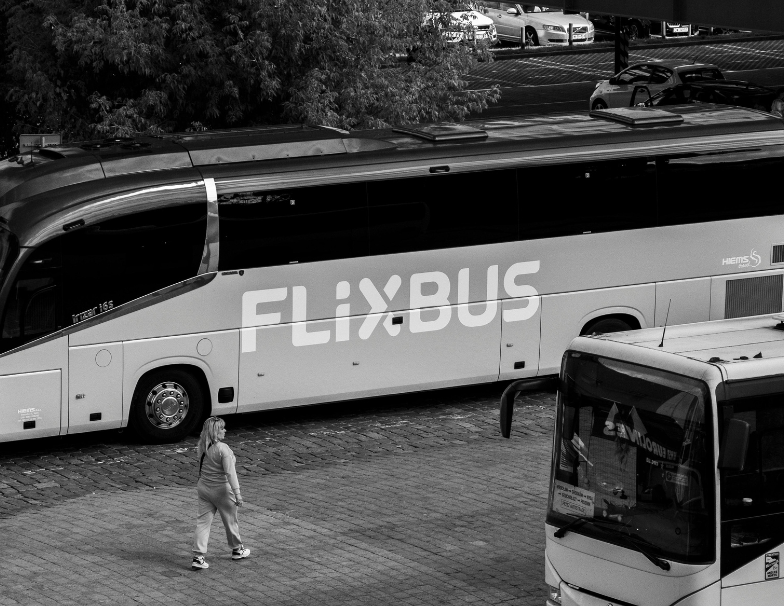Mastering Offsite Meeting Budget Planning: Essential Tips and Strategies

Struggling with offsite meeting budget planning? You’re not alone. From pinpointing travel expenses to accommodating varied team needs, it’s a complex task. This guide breaks down essential components and offers actionable tips to help you plan a budget that drives a successful and cost-efficient offsite meeting.
Key Takeaways
- Effective offsite meeting budgeting is crucial for maximizing ROI, covering essential expenses such as travel, accommodations, meals, and activities.
- Utilizing group discounts, selecting cost-efficient venues, and leveraging in-house resources are key strategies for reducing overall costs during planning.
- Setting clear objectives and measuring success through defined KPIs, post-event surveys, and documentation are vital for evaluating the effectiveness of offsite meetings.
Understanding the Importance of Offsite Meeting Budgeting

Offsite meetings are more than just a change of scenery; they are a catalyst for increased productivity and creativity. These gatherings provide a unique environment that fosters better teamwork and focus among employees. The benefits extend beyond just work; offsite meetings also enhance personal relationships and engagement, which in turn lead to improved team performance and lower absenteeism.
However, hosting a successful offsite meeting comes with its own set of challenges, particularly in terms of budgeting. The average cost per attendee for team retreats typically ranges between $2,000-3,000. Effective budget planning is key to ensuring not only a productive but also a cost-efficient company offsite. Setting clear objectives and using the SMART criteria guides your budgeting and planning processes to achieve optimal outcomes.
With the rise of virtual meetings, offsite gatherings provide a refreshing break, reducing meeting fatigue and enhancing creativity. Therefore, maximizing cost efficiency is crucial to ensure you receive the highest return on investment (ROI) from your offsite meetings. With effective budgeting, you can host an offsite that not only meets but exceeds your team’s expectations.
Key Components of an Offsite Meeting Budget

When planning an offsite meeting, a comprehensive budget is essential to cover all potential expenses. These can include:
- Travel
- Accommodations
- Meals
- Activities
- Miscellaneous costs
Thorough budget planning ensures that all aspects of the offsite meeting are covered, helping to maximize resource allocation and achieve event goals.
Let’s break down these components further.
Travel Expenses
Estimating travel expenses is crucial for any offsite meeting. Consider the transportation costs from the attendees’ locations to the meeting venue. For example, travel expenses for a New York retreat totaled $958, while travel costs from Orlando to Denver were $470.
Offering quality travel options while saving money effectively manages the budget.
Accommodation Costs
Accommodation costs can significantly vary by location, impacting the overall meeting budget. For instance, accommodation costs for an executive retreat in New York were $1,400, while costs in Denver were only $550.
Hotels near attractions enhance the lodging experience, making offsite events more enjoyable for attendees.
Meals and Catering
Meals and catering are essential components of offsite meetings, ensuring that all attendees are well-fed and engaged. Catering options for food can help meet diverse dietary restrictions.
The budget for offsite meals during a New York retreat was $450. Efficiently budgeting for meals ensures everyone can engage in meeting activities.
Activities and Team Building
Activities and team-building exercises are vital for fostering stronger relationships and enhancing team dynamics. For example, a wine and chocolate truffle-making party, priced at $202, offers a distinctive and memorable experience that encourages collaboration and shared enjoyment among participants. It also offers the following benefits:
- Keeping the team engaged
- Aligning with meeting objectives
- Promoting creativity
- Encouraging problem-solving
Miscellaneous Expenses
Miscellaneous expenses are often overlooked but are essential for comprehensive offsite meeting budget planning. For example, the total budget for a New York luxury executive retreat was estimated at $30,568. Accounting for miscellaneous expenses covers all potential costs, making the budget more robust and reliable.
Setting a Realistic Budget
Setting a realistic budget is a cornerstone of effective offsite meeting planning. It sets financial boundaries, ensuring cost efficiency and financial control. Proactive budget planning helps balance the investment with potential positive outcomes, driving successful offsite meetings.
Effective budgeting involves:
- Calculating expenses for all event aspects, from travel to team-building activities.
- Using tools like the Budget Estimator to help inform financial decisions by breaking down the budget into categories.
- Ensuring balanced resource allocation.
Analyzing Previous Offsite Costs
Reviewing historical offsite budgets highlights spending patterns and identifies successful strategy through strategic planning. This analysis provides insights into what worked and what didn’t, aiding informed decision-making.
Aligning Budget with Objectives
Aligning the budget with meeting objectives ensures that every expense supports the meeting’s purpose.
Selecting venues that allow for a variety of uses in the space can enhance flexibility and cost-effectiveness.
Contingency Planning
Contingency planning is critical for managing budgets effectively during offsite meetings. Allocating a portion of the budget for unforeseen expenses manages unexpected costs during the plan retreat.
A contingency fund ensures that unexpected costs do not disrupt the overall budget, as one might expect.
Tips for Cost-Effective Offsite Meetings

Cost-effective offsite meetings require careful planning to maximize impact while minimizing expenses. Budgeting for travel ensures attendees can access affordable but quality transportation options. Here are some tips to help you achieve a cost-effective offsite meeting.
Leveraging group discounts, choosing cost-efficient venues, and utilizing in-house resources can significantly reduce costs.
Leveraging Group Discounts
Booking travel and accommodation as a group can lead to significant savings due to bulk pricing. Group discounts reduce overall costs for travel, lodging, and activities during offsite meetings.
Choosing Cost-Efficient Venues
Selecting the right venue sets the tone and impacts engagement and outcomes of the meeting, including the use of a conference room. Key factors to consider include a flexible layout, ambiance, accessibility, and comfort accommodations.
Booking during off-peak seasons can lead to significant savings on venue and accommodation costs.
Utilizing In-House Resources
Using in-house resources can reduce offsite meeting costs while promoting team synergy and collaboration. Relying on existing facilities, equipment, and personnel can eliminate many external costs associated with meeting planning.
Partnering with Offsite for Seamless Planning

Partnering with Offsite reduces planning headaches by centralizing logistics and vendor management. Offsite offers tools and guidance for planning a successful offsite meeting.
Off site offers access to vetted venues, expert planning support, and exclusive savings for your offsite event site. This simplifies the planning process and ensures a seamless experience, allowing focus on strategic tasks.
Access to Vetted Venues and Vendors
Partnering with Offsite offers:
- Access to thousands of vetted venues
- Potential for significant discounts on various retreat budget items
- Established relationships with venues that can result in lower costs and better terms for your group.
Expert Planning Support
Offsite offers exclusive savings through pre-negotiated rates and expert planning support, ensuring a seamless booking experience with end-to-end retreat planning services at a flat, per-person rate.
Exclusive Savings and Deals
Users can save up to 50% on retail rates with VIP service, concessions, and contract terms. Offsite companies offer significant savings on corporate retreat expenses.
Creating a Detailed Offsite Agenda

A clearly defined offsite meeting agenda is vital as it keeps the team concentrated and productive throughout the event. Incorporating team input into planning increases engagement and ensures a relevant agenda.
Balancing work and leisure, incorporating team-building activities, and allowing time for reflection and feedback within a time limit are key to a successful offsite agenda.
Balancing Work and Leisure
A balanced agenda for an offsite meeting should include:
- Focused work sessions
- Workshops
- Team-building activities
- Breaks
Engaging activities during offsite meetings enhance teamwork and foster meaningful connections, fostering stronger meaningful connections.
Incorporating Team Building Activities
Involving team members in the planning of offsite activities promotes ownership and enhances the overall success of the organization’s corporate event, fostering not everyone in the entire team bonding during the team retreat, especially among smaller teams, to create a more fun cohesive environment with ideas related to company culture and creative thinking, which can be held virtually.
Expert support from Offsite includes assistance with an offsite team building activities tailored to the group’s needs.
Allowing Time for Reflection and Feedback
Reviewing notes from previous company offsites helps avoid mistakes and replicate successes. Debrief sessions after each challenge in offsite games allow for discussion on insights and applications.
Measuring the Success of Your Offsite Meeting
Establishing clear objectives at the onset helps track effectiveness and return on investment. Identifying key performance indicators before the event is crucial for evaluating success.
Effective assessment of offsite meetings should include both qualitative and quantitative data to provide a comprehensive view of success.
Post-Event Surveys
Sessions for reflection and feedback in your offsite agenda enhance future events by identifying strengths and areas for improvement.
Analyzing Outcomes vs. Objectives
A successful offsite requires pre-defined goals, and post-event evaluations should gauge how well these objectives were met. Evaluating if objectives were met helps understand the efficacy of the offsite meeting.
Reporting and Documentation
Documenting key insights and lessons learned is critical for refining future offsite meetings to enhance effectiveness. Analyzing outcomes versus initial objectives provides measurable documentation of success and areas for improvement.
Maintaining thorough records of insights and feedback ensures continuous improvement and strategic alignment in planning future offsite meetings.
Summary
Mastering offsite meeting budget planning involves understanding the significance of detailed budgeting, setting realistic financial boundaries, and leveraging cost-effective strategies. By analyzing previous costs, aligning the budget with objectives, and incorporating contingency plans, you can ensure a productive and cost-efficient offsite meeting. Partnering with Offsite offers seamless planning, access to vetted venues, and exclusive savings, which can significantly enhance your meeting’s success. Remember, a well-balanced agenda and thorough post-event analysis are key to continuous improvement and achieving your strategic goals.
FAQs
- How does Offsite help with budget planning for offsite meetings?
Offsite helps with budget planning by offering tools and guidance to establish a clear budget, paired with a structured meeting planning checklist to ensure comprehensive coverage of all expenses. This streamlined approach allows for effective financial management of offsite meetings.
- What are some cost-effective strategies for offsite meetings?
To ensure a successful offsite meeting while keeping costs low, consider leveraging group discounts, selecting budget-friendly venues, and utilizing in-house resources. These strategies can effectively reduce expenses without compromising quality.
- How can I measure the success of my offsite meeting?
To measure the success of your offsite meeting, establish clear objectives beforehand, conduct post-event surveys, and analyze the outcomes against those objectives. Documenting insights and feedback will further enhance your evaluation process.
- What support does Offsite offer for planning corporate retreats?
Offsite provides extensive support for planning corporate retreats by connecting you with vetted venues and vendors, offering expert planning assistance, and helping you achieve considerable savings.
You may also like
Unique spaces for your next offsite
Find distinctive venues for your upcoming corporate retreat.
Stay Updated with Our Insights
Get exclusive content and valuable updates directly to you.







